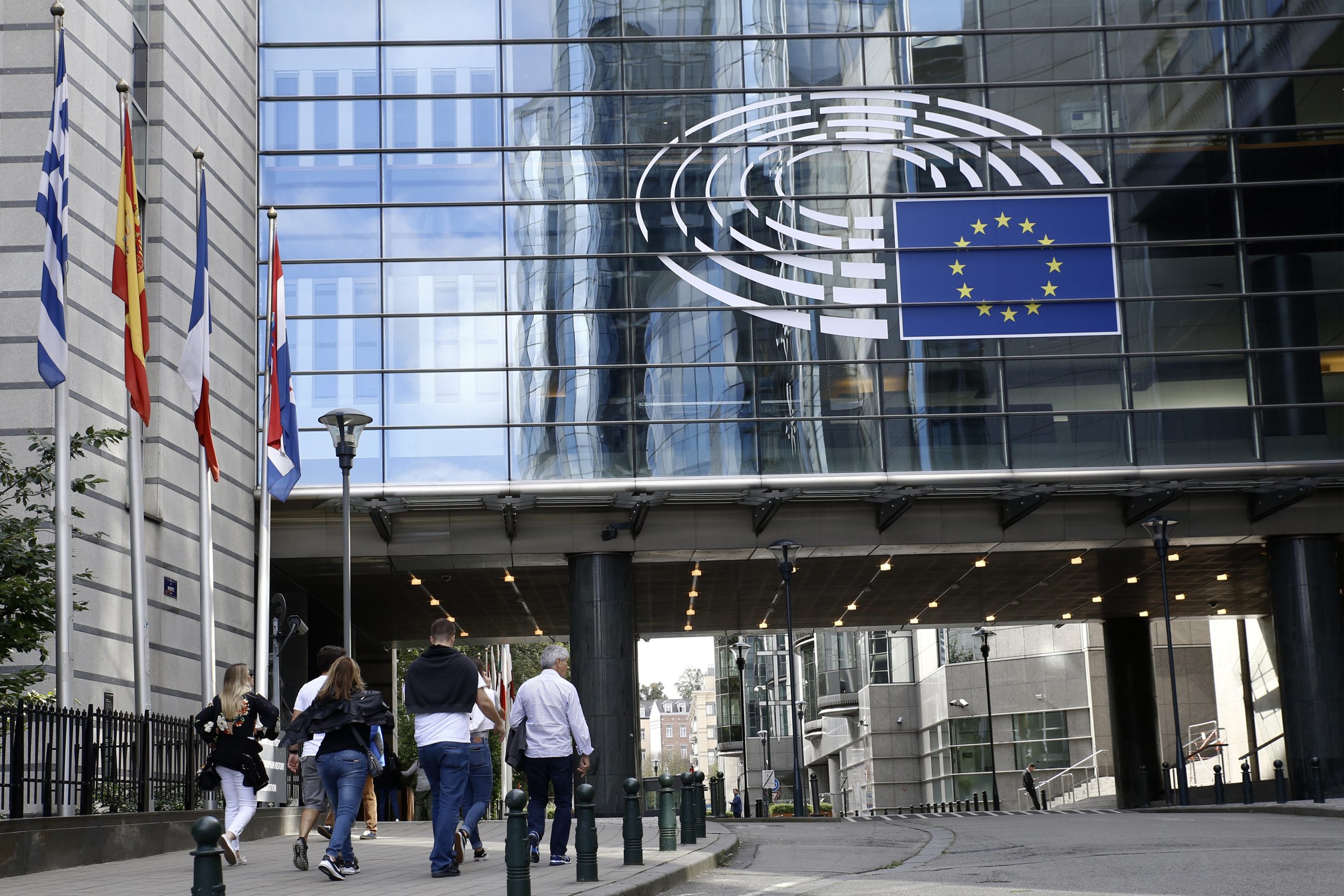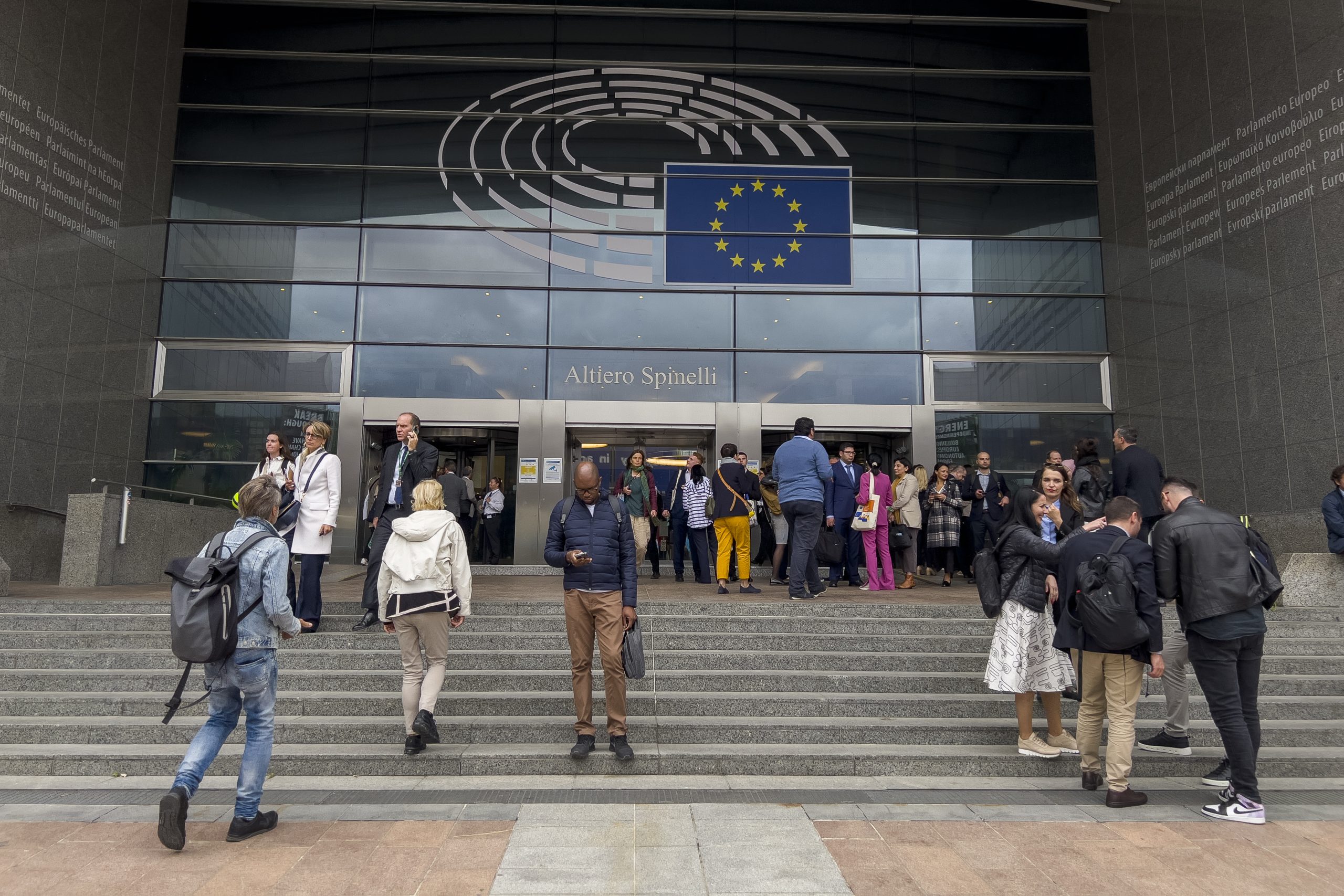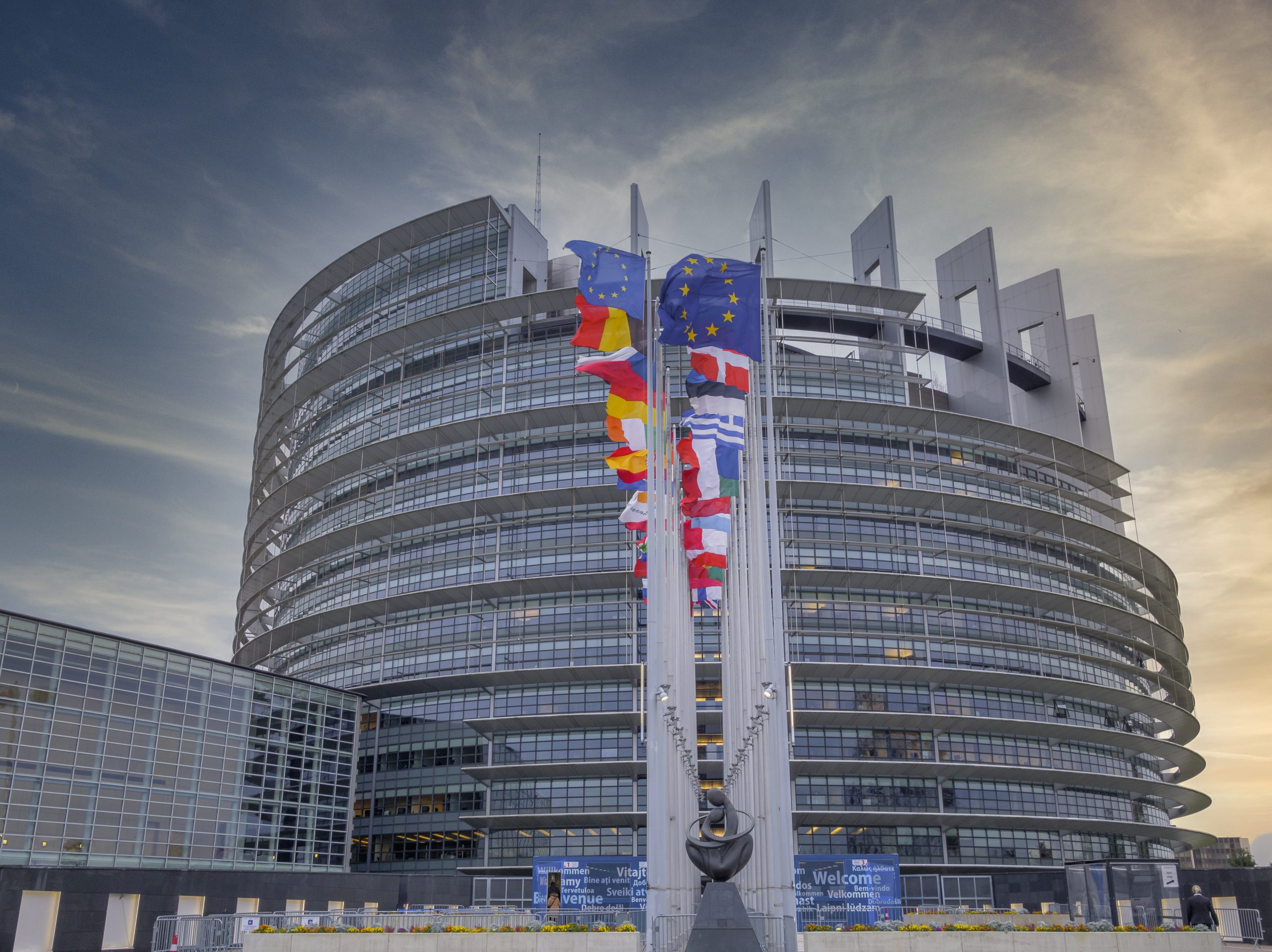Árpád LAPU: AnEl-Ep-Hant in the Room: The European Parliament’s Proposal on the Modification of the Treaties
The Constitutional Affairs Committee (AFCO) of the European Parliament has discussed the draft report on the proposal of the European Parliament for the modification of the Treaties on the 14th of September. During the next meeting of the Committee, it was announced that AFCO will vote on the proposal in one of the extraordinary meetings in October, so it can be voted on by the Plenary of the European Parliament (Parliament) in November. The report was negotiated between six co-rapporteurs for months, and in August one of the rapporteurs (a Polish conservative MEP and professor, Jacek Saryusz-Wolski) has withdrawn his name from the report due to irreconcilable differences regarding the text. He explained his position in the first AFCO committee meeting in September. The ID group has not participated in the process from the beginning. The circle of rapporteurs therefore contains four Germans (Sven Simon, Gabrielle Bischoff, Daniel Freund, and Helmut Scholz) and one Belgian MEP, Guy Verhofstadt. All rapporteurs are longstanding supporters of deep reforms of the EU and are members of The Spinelli Group, “pursuing the objective of the federal reform of the European Union”. If the report will be adopted in November, the European Parliament will propose the application of Article 48 TEU for the ordinary revision of the Treaties.
Meanwhile, a paper was presented in the Council of the European Union (Council) stating that it is not their position, but of the group of twelve (French and German) experts entrusted by a German and a French state secretary with the specific task of assessing the state of the EU and possible reforms. There is a striking resemblance in the text of the experts and the proposal of the Parliament. There is also a private initiative from the Federal Alliance of European Federalists named A Comprehensive Federal Constitution for Europe, which also has some common points with the proposal of the French-German experts and the draft of the European Parliament.
During the AFCO debate on the 14th of September, multiple Members of the European Parliament, coming from different affiliations from the political spectrum (ECR, EPP, S&D) have signaled their skepticism towards the report, explaining that the treaty amendments favor big Member States over the rest of the European Union. Many of the proposals do seem to change the balance of power in the Council and between the Council and the Parliament as well. In the following train of thought, the elephant in the room will be examined (with a focus on institutional issues).
No enlargement without leaps toward federalism
The INL draft report of the Parliament on its proposal on the modification of the Treaties consists of a resolution and its annex, incorporating 267 amendments to the TEU and TFEU. Already in its second article, the resolution states that there are several countries of the Western Balkans, Ukraine, and Moldova, who are in different stages of accession negotiations. The rapporteurs explain in the Explanatory Statement that they aim to reshape the EU in a way that will enhance the EU’s capacity to act. In the AFCO meeting of 14 September, during the presentation of the draft report, the rapporteurs explained in detail that they see their proposals on institutional reforms as a precondition of continuing the accession procedures with the referenced states. Therefore, the goal of the rapporteurs is not only to propose a complete institutional reform of the Union but to set certain limitations and preconditions before further accession to the EU.
Less Member States, more Parliament
Article 3 of the resolution declares as a fact that the Council of the European Union is already the second chamber of EU legislation. The European Parliament has already proposed in its reports (see a previous post on this here) the weakening of the powers of the Council and the European Council through reforming the EU’s legislative system by establishing a two-chamber system, in which the Council (as the “Senate”) would serve as the second chamber and Parliament as the first one. There are only a very limited number of countries (Bosnia-Herzegovina and Italy), where there is an equal-bicameralism, meaning the two chambers have relatively the same powers. There are no international organizations with a bicameral legislative system. The Parliament is striving to establish the second-chamber role of the Council through these modifications.
The rapporteurs have proposed to delete unanimity in the Council and enact qualified majority voting in lieu of it, horizontally, in all fields of EU law. A qualified majority would only require a threshold of 50% of the population. In numerous fields where special legislative procedures still exist; ordinary legislative procedures would be introduced, which would lead to a stronger role for the European Parliament in the decision making. The European Parliament would receive a general right of initiative, meaning it could initiate ordinary legislative procedures (without the decision of the European Commission). The European Parliament would receive a decisive role in the adoption of the Multiannual Financial Framework (MFF) and would have stronger powers in the budgetary and financial procedures. The introduction of the EU’s new own resources would be adopted in ordinary legislative procedure.
Moreover, the lead candidate system would be introduced through an amendment giving the right to the European Parliament of proposing the candidate for the presidential seat of the European Commission (called “president of the European Union”), basically turning the current procedure around using a treaty modification. The Parliament would decide, on its own, about the number of its own mandates for each Member State (currently, the decision is taken by the European Council on the proposal of the Parliament). Modifications of the European electoral provisions could be adopted with a qualified majority decision of the Council, making it easier to adopt ideas such as the introduction of transnational lists. The Parliament would be able to initiate European referendums and would have the right to hold the members of the European Commission (“Executive”) individually or collectively responsible and to file an action to the Court of Justice of the European Union in case of breaches of the Treaties. The catalogue of exclusive EU competences would be extended with environment and biodiversity, forestry, public health matters, cross-border infrastructure, external border policy, foreign affairs, external security and defense; civil protection; industry; education especially concerning transnational issues and gender equality. The EU would have the competence to adopt common provisions on the acquisition and loss of citizenship of the Union. There are no new, proposed shared competences or competences returning to the Member States. The draft report would also reform the Article 7 procedure by lowering the four-fifths threshold in paragraph 1 and the unanimity threshold in paragraph 2 to a qualified majority. The European Parliament or the European Commission would have the right to submit an application to the Court of Justice of the European Union. There is a tangible appetite for more powers.
The rapporteurs did not only draft amendments of institutional nature, but they have suggested symbolic changes to the names of positions and institutions in the EU-architecture as well. The European Commission would become the European Executive, its members would be secretaries, just like in the US government. The head of the Executive would be the “President of the European Union”. The position of the president of the European Council would drastically change.
This short summary shows that the institutions representing the Member States would lose their influence significantly, as the powers of the European Parliament would strengthen significantly, establishing an unequal bicameralism.
Incentives—adopt or leave?
The Franco-German report has lots of similar proposals as the draft report to be discussed in AFCO. It argues that there are many transnational crises and EU enlargement is high on the political agenda due to its geopolitical nature, but the EU is not ready yet to welcome new members institutionally or policy-wise. The authors argue that there is a need to improve the EU’s functionality before the next enlargement, thus establishing new criteria for future accessions.
First and foremost, the authors would recommend to strengthen the conditionality procedure and the Article 7 TEU procedure by extending their scope. The threshold in the Article 7 procedure would be lowered and automatic sanctioning mechanisms would be introduced. Budgetary conditionality would be an instrument to sanction any breaches of rule of law. It would not only apply to protect the EU’s financial interests, it would be applicable generally.
The experts argue for a transfer in all policy decisions from a unanimity threshold to a qualified majority threshold, in most cases with a full co-decision role of the Parliament (ordinary legislative procedure). This paper, however, added incentives to the proposal as well, in the form of “a sovereignty safety net”, a rebalancing of the voting shares, and an opt-out mechanism.
Playing with the idea of the sovereignty safety net we can realize, that if a member state would signal that a vital national interest is at stake in a certain point on the agenda, it could make a formal declaration to the European Council, where the heads of states and heads of governments would vote on it. However, in the Council, there would be a qualified majority vote on the referral to the European Council. One problem with this idea is the fact that it is not a real guarantee, like consensual decision-making, as the member state in question would be on the defensive from the first moment on of the procedure. It is just like changing the burden of proof: the one, who carries the burden of proof, carries the price of indecision, not only of negative decisions. Member States would be in a tough position, forced to “pick their battles”. It would not be possible to start too many sovereignty safety procedures as it would lead to the loss of influence and partners for the Member State in question in the long run. Regarding changing the calculation of qualified majority voting, changing from 55% of the Member States representing 65% of the population to 60% of the Member States representing 60% of the population is not a guarantee for smaller Member States. It is rather insignificant considering the big picture, and the Member States that are more influential would still have more advantage in convincing other Member States and would reach the threshold more easily. Likewise, opting out in certain issues could lead to serious disadvantages in the long run, just like opting out from Schengen did for the citizens of certain countries in the long run. None of the three guarantees serves as a real way of protecting national sovereignty and constitutional identity.
Regarding institutional reforms, the Franco-German paper explicitly states the goal of evolving towards a federal state, argues for the Parliament to be further empowered and for the Commission to become the executive, for the Council to become a high chamber. It would also introduce the “lead candidate” procedure, extending the competences of the EU in further fields and abolishing unanimity decisions in the Council. It would change the election system of the EU as well, it even references the idea of transnational lists as a positive one, but does not specifically recommend it due to its controversial nature. It would introduce new own resources for the EU, would give further rights to the European Parliament in budgetary fields, and would allow for issuing common debt.
The Franco-German paper takes an unusually strong stance. Regarding the Article 7 procedure (TEU), it states that if a Member State violates rule of law at a certain level of persistency and gravity, the country can no longer remain a Member State of the EU. Furthermore, the paper states that if the proposed treaty revisions cannot be accepted through the ordinary revision procedure or the passerelle-clauses, states that are willing to do so would simply adopt an international agreement for taking further steps on that specific field, leaving the ones not agreeing with the decisions behind. The future of European integration would have four distinct tears, the inner circle (the model would be the current Eurozone and Schengen Area, with deeper integration), the EU (the current EU as model), associate members, and the model of the European Political Community, with no form of integration with binding EU law and with no access to the single market. The main message of the Franco-German report is therefore either (less influential) Member States accept the proposed treaty modifications or their status will be significantly reduced in the European integration.
Apart from the above-mentioned initiatives, there is one from the Federal Alliance of European Federalists named “A Constitution for the Federated States of Europe”. Interestingly, many recommendations from this proposal are in harmony (president of the European Union, right of initiative for the European legislative body, European referendum, etc.) with the ones detailed in the EP proposal and in the Franco-German expert paper, leaving some room for further comparative analyses of the topic in the future.
The el-EP-hant in the room
The European Parliament has already tried to initiate the ordinary reform procedure during this mandate, but the Council of the European Union has not voted on forwarding it to the European Council. It is questionable, whether this report will have the necessary support from the Member States. Many of the proposals seem to aim to reduce the influence of the (small and medium-sized) Member States in European affairs and to abolish guarantees protecting Member States from more influential ones in the EU’s decision-making. The Franco-German proposal even states a clear message: take it or leave it.
The idea of European ministers was already voted down by French and Dutch citizens. Would the proposal of a European president and European secretaries lead to a different result from the aspect of the Member States less than two decades but several crises later?
Árpád Lapu is a policy adviser on constitutional issues at the European Parliament since 2019 and a PhD student of the Károli Gáspár University of the Reformed Church in Hungary. Between 2017-2019, he worked as an adviser at the Cabinet of the Minister of Justice of Hungary, conducting comparative constitutional analyses. He has earned his JD at the Pázmány Péter Catholic University in Hungary, has a BA in international relations from the University of Szeged and an MA in European and international administration from Andrássy Gyula German Speaking University in Budapest. He has completed an Edx MicroMaster in cooperation with the Catholic University of Louvain (UCLouvain) in international law. His field of research is non-participation in armed conflicts in international law and constitutional norms regarding non-participation in armed conflicts. He has written publications regarding the future of the EU ETS system of the European Union, institutional reform proposals of the Union, and research in the field of social sciences.








